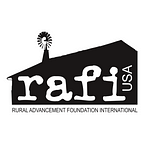When I ask Thomas Bradley how he got started in farming, he simply replies, “It’s just what I’ve always done.” Bradley is farming land that his grandfather and great-grandfather farmed for 100 years before him. Bradley Farms is on an approximately seven acre parcel located in the Big Cove Community of the Qualla Boundary, home to the Eastern Band of the Cherokee Indians. The farm was started by Thomas’s great-grandfather Seaborn Bradley in the 1920–30s.
The Qualla Boundary is not technically a reservation. It includes 57,000 acres of land purchased by tribal members in the 1800s after more than 11,000 members of the tribe were displaced to Oklahoma by the U.S. government in the Trail of Tears. Descendants of survivors still inhabit the area. The Qualla Boundary lands are currently held in trust by the federal government. The boundary encompasses five Western North Carolina counties including Cherokee, Graham, Jackson, Haywood, and Swain and is about 60 miles east of Asheville.
Seaborn Bradley’s son and Thomas’s grandfather, Tom Bradley, was born and raised on the farm and worked the land up until his passing in 2020, bringing in his final crop in 2019. After his grandfather’s passing, Thomas took on the role of managing the farm in addition to his own full-time off-farm job. Continuing this growing tradition is, of course, something he shares with his family. On a typical day during planting season, you may see Thomas’s six-year-old daughter and 10-year-old son in the field with him hand planting corn seed. Thomas is quick to acknowledge the help of his Aunt Vita and Grandmother Sadie with everything from fieldwork to processing seed. Vita takes on farm tasks in addition to preserving and canning vegetables produced on the farm and from his father’s garden for their roadside stand, which will be up and running in the fall. Thomas’s grandmother Sadie is the chief seed keeper, helping to save seed each season and archiving varieties to be planted and enjoyed for generations to come.
Bradley Farms specializes in traditional Cherokee crops including Cherokee White Flour Corn, Dutch Fork Pumpkins, October Beans, and Greasy Black Beans. In addition to these heritage crops, Thomas grows mustard greens, potatoes, and cabbage. Their white ear corn is sold on the ear in the fall, as shelled corn for hominy and as milled flour corn for grit bread in the spring season. The white ear corn is a variety that Thomas’s grandfather had grown and saved every year. Thomas sells his products primarily direct to customer through social media to the community in the Qualla Boundary.
Thomas has long hand planted seed each season, but with the help of a RAFI-USA Farmers of Color Network Infrastructure grant, he was able to purchase a seeder, silage tarps, and eventually a grain hopper. These new resources are a part of Thomas’s Traditional 3 Sisters Cropping Expansion project that is meant to help ease labor demands on a farm that uses mostly hand tools to cultivate the land. Three sisters refers to corn, beans and squash — staples in the Cherokee diet. The seeder, specifically, will facilitate succession planting for increased yield. Thomas plans to continue to grow the farm business, hoping to expand to new markets within the Cherokee community as his crop yields and capacity increases.
In addition to his dedication to preserve these traditional foodways through the production and stewarding of these ancient crops and seeds, Thomas is also an avid woodworker. Though largely self-taught, he learned basic woodworking skills from his grandfather. His brand, Standingwolfe Woodworking, is named for the campground that his grandfather managed for several years alongside the farm operation. Thomas makes segmented bowls, utensils, and cutting boards among other items using walnut, maple, ash, cherry, oak, and purple heart woods.
The craft of a woodworker requires a thoughtful and patient approach, not at all different from that of a farmer. One can clearly discern those attributes by listening to Thomas share about his journey. He is taking the lessons that are forged deep within and continuing and innovating the work and the work of those before him. For him it seems, farming is both a means and an end — a passion and skill developed over years of life experience and also, a vehicle to honor and continue a rich legacy that sustains him and so many others.
Author Nikki Pressley works with the Farmers of Color Network as Program Coordinator. Prior to joining the staff at RAFI-USA she worked in the University Relations office at North Carolina A&T State University. Nikki was born in South Carolina and holds a Bachelor’s degree from Furman University and a Master of Fine Art from California Institute of the Arts. Nikki has been growing food on and off for the last 10 years, starting with her time as an urban farmer in Los Angeles.
